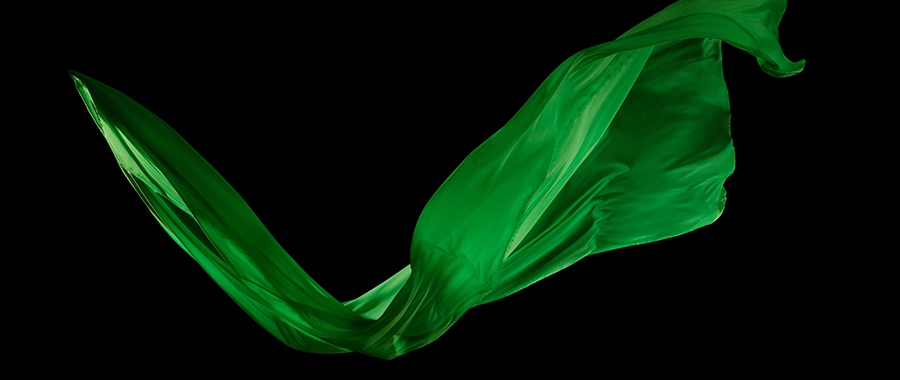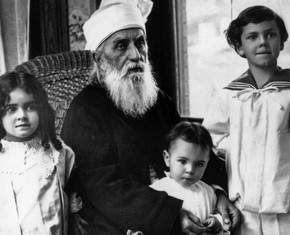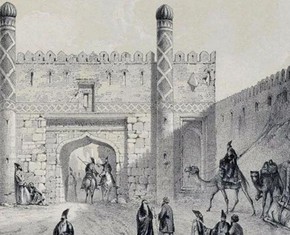The views expressed in our content reflect individual perspectives and do not represent the authoritative views of the Baha'i Faith.
If I ask what happened in Seneca Falls, NY in July 1848, likely every single one of you could answer: the first ever convention for women’s rights.
If I asked who the organizers were, most of you could correctly shout out Lucretia Mott and Elizabeth Cady Stanton.
But how many of you out there know that concurrent to that convention, a conference took place in another part of the world that holds as much importance for women’s rights as the one in Seneca Falls?
In Persia, present day Iran, adherents of the new Babi religion, precursor to the Baha’i Faith, convened in 1848 as well. While consulting on how to help free the Bab, their prophet/leader who had been imprisoned due to fear and misunderstanding of his teachings, they learned some of the revolutionary teachings he had brought. It would be an understatement to say they were astonished when the world’s first female disciple—Tahirih—one of the 19 apostles of the Babi religion, similar in station to the apostles of Christ, stepped, unveiled, from her tent into the midst of her male co-religionists.
There are numerous accounts of this remarkable occurrence and what this bold woman said to the startled men present. Historians of that day, and more current ones, have covered that event and though there are slightly different versions of her words, each is similar and all are powerful:
Tahirih, with her face unveiled, stepped from her garden, advancing to the pavilion of Baha’u’llah; and as she came, she shouted aloud these words: “The Trumpet is sounding! The great Trump is blown! The universal Advent is now proclaimed!” – Abdu’l-Baha, Memorials of the Faithful, p. 202.
[Tahirih]… attended the conference with a veil on “but”… she lost no time in discarding it, and broke out (we are told) into the fervid exclamation, “I am the blast of the trumpet, I am the call of the bugle … Like Gabriel, I would awaken sleeping souls.” It is said, too, that this short speech of the brave woman was followed by the recitation by Baha’u’llah of the Surih of the Resurrection [a chapter in the Qur’an]. Such recitations often have an overpowering effect. The inner meaning of this was that mankind was about to pass into a new cosmic cycle, for which a new set of laws and customs would be indispensable. – Dr. T.K. Cheyne, The Reconciliation of Races and Religions, pp. 101-103.
She stood before them radiant with an inward and an outward beauty. “I am the blast of the trumpet!” she cried out. “I am the call of the bugle!” Gone are the days of dread and subjection for any of the creatures of God, her words called out. Exultant with joy, she then delivered a fervent and eloquent appeal to that assembly. Some that day recalled the words of the prophecy which foretold that in the day of the Promised One, Fatimih [daughter of the Prophet Muhammad], herself, would appear unveiled before them. Others may have remembered the sound of the “bugle” and the “stunning trumpet blast” promised in their own holy Book for the “last days.” – William Sears, Release the Sun, p. 114.
She stands before them unveiled. Her face is bared. She is breaking the greatest taboo of her Islamic nation. It is unthinkable that a young woman of her high status—she is a poet and scholar revered by many as a saint and dowered with wealth, impeccable lineage, and familial connections—should reveal to some eighty men who are not even related to her so much as an eye, a hair, a whisper of the curve of her cheek. Yet here she stands, her beautiful face adorned as if for her wedding, her veil torn away, warp and weft of tradition rent by her own hand, and then by her own voice as she proclaims with ecstatic clarity, “This is the day of festivity and universal rejoicing, the day on which the fetters of the past are burst asunder. Let all who have shared in this great achievement arise and embrace each other.” – Janet Ruhe-Schoen, Rejoice in My Gladness: The Life of Tahirih, pp. 1-2.
A new day was dawning, with new teachings, and the equality of women and men was one of the main principles. Of this trumpeter of the New Day, Abdu’l-Baha wrote:
A woman chaste and holy, a sign and token of surpassing beauty, a burning brand of the love of God, a lamp of His bestowal, was Jinab-i-Tahirih. – Abdu’l-Baha, Memorials of the Faithful, p. 190.
Now you’ve heard of her; you know her name. In our next essay we’ll learn more about her life and what she taught us.
















Comments
Sign in or create an account
Continue with Googleor